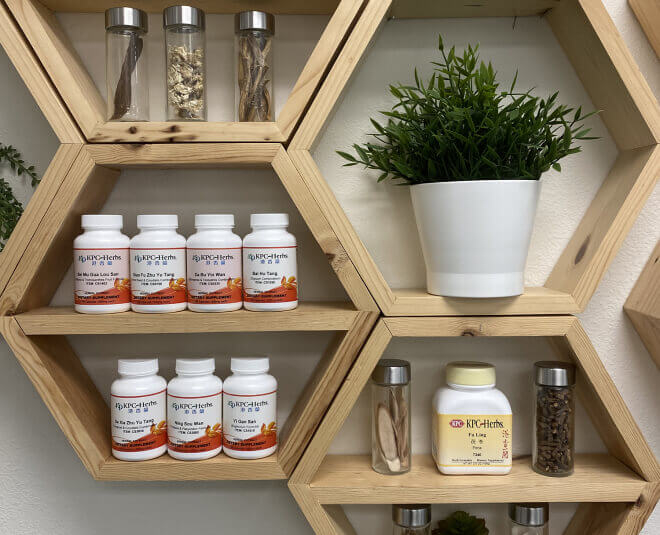Understanding where medicine comes from allows for more informed treatments and health practices. This applies to traditional Chinese medicine (TCM) as well. People have become more aware of what they put in their bodies over the last few decades and want to ensure nothing dangerous is contained. While this isn’t easy with the amount of high-processed foods and artificial ingredients, it is crucial to ensure that medicines and herbal supplements maintain a level of quality and safety to provide natural solutions to health problems.
Herbal formulas can play a significant role in the medical world, helping with illness, improving the immune system, and treating symptoms like stress and anxiety. However, knowing where those herbs come from and how the formulas are manufactured is vital to ensure quality and safety. As market demands grow, strict regulations must be maintained to guarantee consumers receive the best herbal formulas and herbal supplements to help with their health.
Market Demand
The current market for TCM, Chinese herbal medicine and herbal formulas specifically, is on an upward trend. Acupuncture and herbal formulas have become more integrated into Western medicine treatments. Additionally, many people are looking for remedies that come from nature rather than synthetically made in a lab. Herbs specific to helping with stress and improved immunity are especially in demand. When demand increases, many suppliers may cut corners to cut costs and boost production. Finding a safe and well-regulated herb supplier and herbal supplements is crucial to ensure positive health benefits and customer confidence.
The Manufacturing Process
KPC Herbs is an excellent example of transparency in the manufacturing process and have been providing quality herbal formulas for generations with more to come. Though the business has grown substantially, it remains a family-operated business with high standards that lead to high-quality herbs.
When purchasing and using herbal formulas, the manufacturing process is a good place for consumers and practitioners to start. KPC analyzes the herbs, looking at moisture content, purity, extraction, and other properties. They must pass an inspection for quality and safety, checking for pesticides and heavy metals.
After a comprehensive inspection using the latest technology to ensure safety and proper identification, the herbs are cleaned and prepared using traditional methods that vary depending on each specific herb. No shortcuts are taken to diminish the quality or the practice of manufacturing quality formulas.
Following preparation, the herbs go into a rotary extractor, which will mix them in a liquid to cook them and then restore and extract the essential oils. The liquid is condensed, and a proper extraction ratio is determined to create the appropriate formula. Depending on the formula, the concentrate will be sprayed onto non-GMO potato starch and/or ground herbs. This creates the granules that are ready to be packaged or made into tablets or capsules.
KPC then does additional sample testing for a final test to ensure proper formula and quality. These tests include screening for heavy metals, microbial, and pesticides. This rigorous testing allows KPC to pass international standards and supply herbal formulas worldwide.
If a supplier is not forthcoming or upfront about the manufacturing process, consumers and practitioners may think twice about supporting them. Providing information and details on testing helps quality assurance and comfort in consumers.
Focus On Sustainability
A recent survey on consumer sustainability reported that 75% of US consumers were concerned about their purchased products’ environmental impact. The environment and sustainability are key components of the market today. Consumers want to know where their products come from, how they are made, and what they’re made from. In the same survey, 69% of individuals reported that the environmental impact of a product was important to their decision to purchase.
Environmental concerns have pushed many larger corporations to put on a show of sustainability and “going green” without maintaining proper practice. This has been especially apparent in fast fashion and single-use plastics. As consumers grow wary, people are more willing to spend money on higher-quality, more environmentally-conscious brands.
These standards are essential to help the environment and help individual health. Conscious consumers can make more informed decisions about herbal supplements; the same standards apply to the body. People want and need natural treatment options for health and healing where they know how it was sourced and manufactured.
KPC has consistently dedicated time and resources to maintaining a sustainable manufacturing process. KPC creates a balance between supporting the planet and providing quality products by working to eliminate waste in the manufacturing process and remaining environmentally safe when sourcing herbs.
Sustainable Health
TCM has consistently grown and reaches more people daily as herbal supplements and treatments like acupuncture become more commonplace. However, with the growth of any market comes questionable business practices. Finding quality sources for Chinese herbs and treatment options is crucial for effectiveness and overall health. With an emphasis on environmental safety, consumers are more aware of best practices and interested in learning how things are made.
KPC offers a direct look into the process of creating herbal formulas to help with all varieties of ailments. With strict standards and consistent testing for quality, KPC offers some of the best quality formulas worldwide. For those looking to learn more, visit the KPC website to view the catalog and take an in-depth look at the process and the products.
________
*Please note: These statements have not been evaluated by the FDA. This article is not intended to suggest specific treatments for patients or that any supplements mentioned prevent or cure diseases or problems. Before taking any herbs, all patients should discuss their options with a licensed practitioner, including any other medications the patient is currently taking, as there may be contraindications between pharmaceuticals and herbs.

